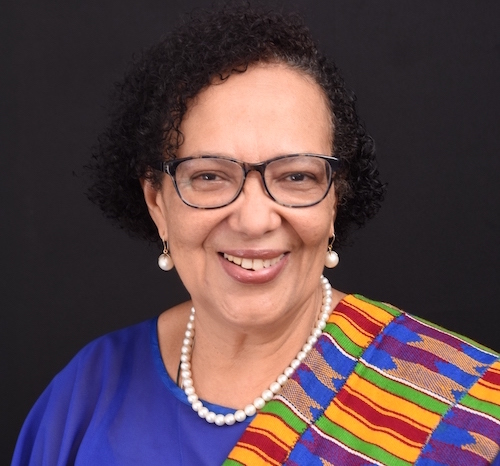UNESCO, AMIC hold forum on Artificial Intelligence Regulation

Dr. Dorothy K. Gordon, chair of UNESCO Information for All Programme (UNESCO IFAP), has echoed the call for media, academe and other sectors to establish Artificial Intelligence governance that would serve humanity and enable individual, rather than corporate and government, control over personal data.
Gordon said Artificial Intelligence, which allows computers to make independent decisions and conclusions based on data extracted from people, is being used for human convenience and the wellbeing of society, but it has also created problems of privacy, security, social exclusion and other issues.
Gordon was speaking at a virtual international forum, “Shaping a Digital Future in Line with our Values: Why AI Regulation Matters,” sponsored by the Asian Media Information and Communication Centre (AMIC) with UNESCO and UNESCO IFAP, and virtually attended by 205 media practitioners and educators from 13 countries last November 24.
Gordon encouraged people to think about addressing the issues in the context of UNESCO’s mission to provide everyone “access to information in a fair way that no one is left behind… a digital transformation that serves our needs and supports the achievement of the 17 Sustainable Development Goals.”
She said: “It is a shocking statistic that globally there are only 200 companies controlling almost 80 per cent of the development of of AI (some are very big and the rest are minor), and only 15 platforms are controlling the data. These companies and platforms are based in only five countries.”
Development of Artificial Intelligence is so fast, she added, but governments have been slow in creating a legal system for digital governance. She also said media and the academe are not paying enough attention to these digital issues.
However, she said, in November 2021, 193 UNESCO member states adopted the first ever global agreement on the Ethics of Artificial Intelligence.
In a press statement, UNESCO said “the historical text defines the common values and principles which will guide the construction of the necessary legal infrastructure to ensure the healthy development of AI.”
While recognizing the remarkable results delivered by AI in various fields like medicine, poverty reduction, global aid, combatting climate change and world hunger, UNESCO also sees new challenges posed by AI in terms of “gender and ethnic bias, threats to privacy, dignity and agency, dangers of mass surveillance and increased use of unreliable AI technologies in law enforcement, to name a few.”
It said, “Until now, there were no universal standards to provide an answer to these issues.”
The UNESCO Recommendation “ensures that digital transformations promote human rights and contribute to the achievement of the Sustainable Development Goals, addressing issues around transparency, accountability and privacy, with action-oriented policy chapters on governance, education, culture, labour, health care and the economy.”
The Recommendation calls for action to ensure that individuals get more protection of their data beyond what governments and private tech companies are doing.
The Recommendation bans social scoring and mass surveillance, a very invasive infringement on human rights and fundamental freedoms, the statement said.
During the forum, Gordon said AMIC has the opportunity for greater information dissemination and education toward media literacy among its members worldwide, beginning with helping journalists acquire the tools for AI reporting.
Ramon Guillermo R. Tuazon, AMIC Secretary-General and UNESCO Myanmar Senior Information Specialist/Consultant, agreed with the speaker that media are not on top of digital issues coverage, simply because generally there still is lack of understanding of AI among journalists.
This forum was the second in the AI series scheduled by AMIC. The next forum is on AI Competencies for Journalists and Civil Servants.
The first forum was held last October, featuring Dr. Mohamed El-Guindy, on the topic, “Malicious Use of AI: Legal and Ethical Implications.”
